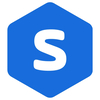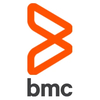The scheduling component of JD Edwards EnterpriseOne, often referred to as “JDE Scheduler,” has long been a reliable task manager. However, as modern infrastructure requirements have changed, so too have the options for task scheduling.
We selected the top alternatives based on the features, pricing, and market presence metrics of leading solutions. See our rationale for selecting each tool by following the links below:
| Alternatives to JDE Scheduler | Best for | |
|---|---|---|
1. | SLA management & path tracking | |
2. | Orchestrating SAP jobs while keeping a clean SAP core | |
3. | PowerShell integration and job scheduling management on the .NET framework | |
4. | Wide range of community-driven pre-packaged integrations delivered as SaaS | |
5. | Data pipeline orchestration and managed file transfers | |
Successful IT infrastructure management relies on strong workload automation and job scheduling capabilities. Although JDE Scheduler continues to be a potent tool, various new alternatives offer advanced functionalities, the ability to schedule tasks across distributed systems, and enhanced reliability:
JDE Scheduler Alternatives’ Comparison
| Solution | Ratings* |
|---|---|
| Tidal WLA | 4.8 based on 50 reviews |
| RunMyJobs by Redwood | 4.8 based on 140 reviews |
| Stonebranch | 4.8 based on 79 reviews |
| Control-M | 4.7 based on 150 reviews |
| Fortra’s JAMS | 4.7 based on 142 reviews |
| JD Edwards EnterpriseOne | 4.0 based on 249 reviews |
*Ratings and the number of reviews are based on software review platforms PeerSpot, Gartner, and G2.
JDE Scheduler Review
JDE Scheduler refers to the scheduling component of JD Edwards EnterpriseOne, an integrated applications suite of comprehensive enterprise resource planning (ERP) software. JDE ERP is one of the larger ERP players with 10.96% market share.1
Originally developed by JD Edwards, the company was later acquired by PeopleSoft, which in turn was acquired by Oracle Corporation. The software is now branded under the Oracle umbrella.
The JDE Scheduler is responsible for automating, planning, and scheduling tasks within the JD Edwards environment. It helps organizations automate batch jobs and processes, allowing for more effective resource allocation and improved operational efficiency. Third-party job scheduling software might be integrated with JD Edwards to offer advanced scheduling features.
Features
- Comprehensive Integration to JD Edwards modules: As part of the JD Edwards EnterpriseOne suite, the scheduler offers seamless integration with other JDE modules, providing an end-to-end solution for ERP, finance, HR, and more.2
- Reliability: JD Edwards’ reliability and is backed by Oracle’s support and development capabilities, ensuring organizations have robust technical support and regular updates.
- Dependency Management: The scheduler allows for complex dependency management between jobs, ensuring tasks are executed correctly.
- Resource Allocation: Provides capabilities to allocate system resources based on the priority of tasks, which is crucial in complex environments where resources may be limited.
- Alerts and Monitoring: The tool provides various ways to monitor job status, including alerts and logs, enabling quick action in case of failures or delays.3
Where it may fall short
- Learning Curve: JDE Scheduler can be complex to set up and may require specialized knowledge or training.4
- Cost: As part of Oracle’s broader JD Edwards suite, the overall costs, including licensing and support fees, can be high.5
- Limited Advanced Features: While robust, JDE Scheduler may not offer some of the more advanced features available in specialized third-party scheduling software, such as distributed scheduling across multiple platforms or advanced analytics.
- Vendor Lock-in: If your enterprise is heavily invested in Oracle’s ecosystem, switching to another solution might be costly and time-consuming.6
JDE Scheduler Company Overview:
The JD Edwards Scheduler was introduced as part of EnterpriseOne, a suite launched around the late 1990s and early 2000s.
Acquisitions and Major Changes:
- Acquisition by PeopleSoft (2003): JD Edwards was acquired by PeopleSoft in 2003 for approximately $1.8 billion. The combination of JD Edwards’ mid-market ERP strength and PeopleSoft’s human resources and financial management software created a powerful competitor to other ERP systems.
- Oracle Acquisition (2005): In 2005, Oracle acquired PeopleSoft, and with it JD Edwards, for about $10.3 billion. This acquisition marked Oracle’s aggressive push to dominate the ERP market, competing with the likes of SAP. As of 2024, it continues to exist as JD Edwards EnterpriseOne and JD Edwards World within Oracle’s ERP portfolio.
Alternatives to JDE Scheduler
Tidal WLA
Tidal WLA is a unified workload automation platform for centralized management and control of job scheduling across business, operations, and IT processes. Tidal can run on-prem or in the cloud. With 60+ pre-built integrations, Tidal can automate applications, middleware, physical infrastructure, and dynamic resources.
Tidal can handle the intricacies of scheduling across different time zones, such as adjusting Daylight Saving Time changes at uneven intervals or modifying jobs during a regional holiday. The platform includes many of the most frequently used calendars and allows you to generate an unlimited amount of custom calendars.
RunMyJobs by Redwood
RunMyJobs by Redwood is a workload automation platform delivered as SaaS for critical business operations. As a SaaS platform, RunMyJobs enables users to automatically get the latest updates. RunMyJobs is capable of managing workloads on S/4HANA or BTP through its native integrations. This enables users to automate tasks without requiring extra software or modifications to their core SAP setup. Additionally, it offers SAP-certified integrations with RISE and SAP S/4HANA Cloud.
It provides connectivity between on-premise and private cloud SaaS solutions. For those interested, an on-demand free trial is available.
Fortra’s JAMS
Fortra presents JAMS, a tool designed for job scheduling and workload automation, aiding organizations in the automation, management, and monitoring of jobs and tasks across various platforms, applications, and systems.
Fortra’s JAMS utilizes PowerShell, as it is based on the .NET framework, which shares similarities with PowerShell. The JAMS module offers more than 50 cmdlets, allowing users to manage, maintain, and administer JAMS directly via PowerShell. It accommodates numerous platforms including Windows, UNIX, Linux, and IBM and widely-used applications such as SQL Server, Oracle, and SAP.
Stonebranch
Stonebranch users can take advantage of the Stonebranch Integration Hub to access integration templates contributed by the community. The platform also offers dashboards and detailed reports, enabling real-time insights and the monitoring of service level agreements (SLAs). It is frequently recognized for its excellent customer support.
BMC Control-M
Control-M is a workload automation tool created to simplify the management of intricate IT operations across various platforms, applications, and databases. It boasts several significant features including a consolidated control panel, advanced analytics for forecasting, an intuitive web interface, and effortless integration with popular applications such as Hadoop, Informatica, and SAP.
If you made up your mind about Control-M or want to explore the alternatives, read “Top Alternatives to Control-M” article.
Disclaimer
The information is collected from vendor websites or software review platforms (for example, ratings). It’s important to note that certain vendors offer a multitude of services (such as JD Edwards Enterprise) whereas others specialize exclusively in scheduling (ActiveBatch). As a result, there may be variations in both their company size and the number of reviews. If you think we have overlooked any vendor or feature, please get in touch with us.
External links
- 1. Oracle JD Edwards - Market Share, Competitor Insights in Enterprise Resource Planning (ERP).
- 2. JD Edwards EnterpriseOne reviews 2025.
- 3. JD Edwards EnterpriseOne | Oracle.
- 4. JD Edwards EnterpriseOne reviews 2025.
- 5. JD Edwards EnterpriseOne reviews 2025.
- 6. JD Edwards EnterpriseOne reviews 2025.






Comments
Your email address will not be published. All fields are required.